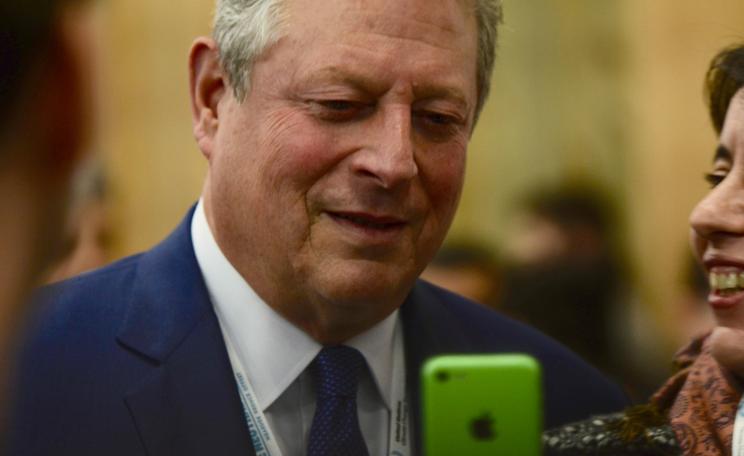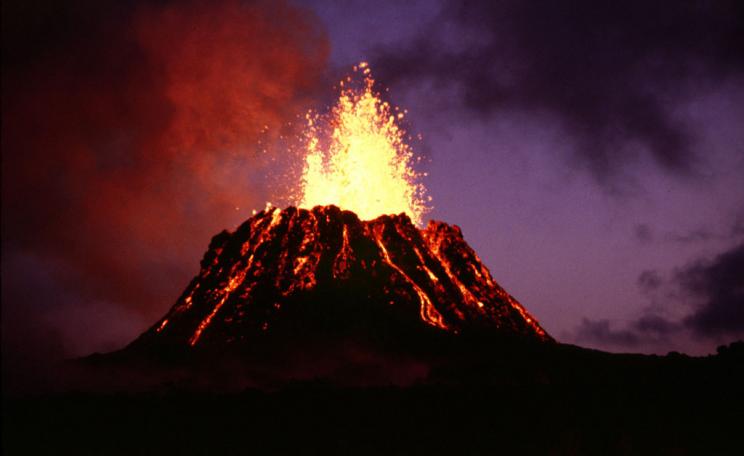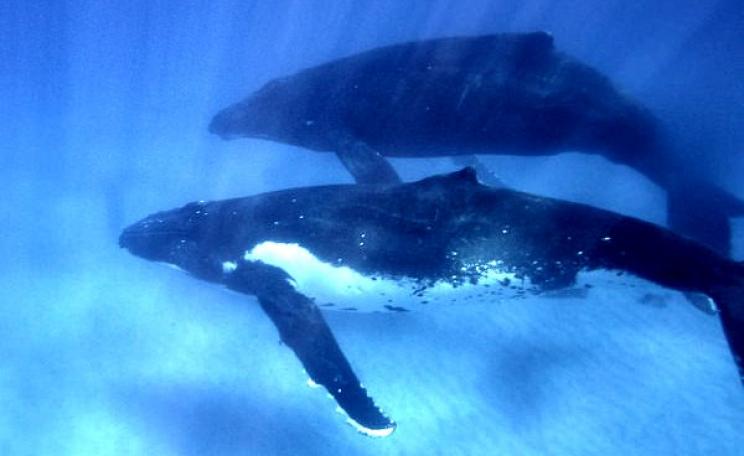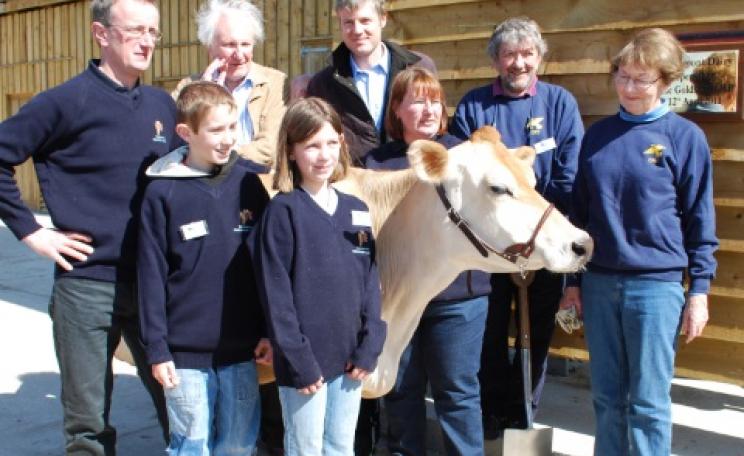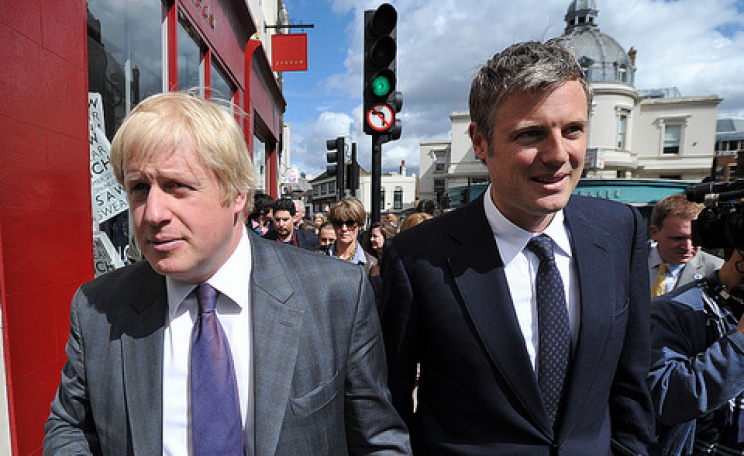Leonardo DiCaprio is a rare phenomenon. Whereas for so many celebrities an interest in the environment is a fashionable accessory, for DiCaprio it is a thread that runs through everything he does.
He’s championed some of America’s most effective environmental organisations, such as the Natural Resources Defence Council and Global Green and has led calls for the expulsion of oil money from US politics. His new film The 11th Hour is a very personal project where the two parts of his life merge.
Hot on the heels of Al Gore’s An Inconvenient Truth, The 11th Hour is very much the sequel and to be amongst the first to view it – even before it debuted at Cannes – was a privilege.
I expected something impressive. I expected something profound and depressing – a catalogue of human errors and a stark warning. But The 11th Hour takes the debate about the environment to a whole new level. It places the problems we’re now mostly aware of in the context of something bigger, describing climate change, oceanic dead zones, soil erosion, the destruction of the world’s forests and the spread of disease in the context of system failure. It is shockingly ambitious, and it works.
Arranging the interview was a logistical nightmare but eventually we settled on a date coinciding with the Cannes Film Festival. I wasn’t planning to stay long in France, so besides my papers and computer I arrived relatively unburdened by luggage. But I’d misjudged the nature of the festival. Wandering past trendy film crews, make-up artists and fashion journalists, down a beachfront path towards the ‘interview tent’, it occurred to me from the looks I was getting that perhaps I should have found an alternative to my accustomed winter tweed jacket and thick brown trousers.
At least that’s what I thought. In fact it was something else. What I hadn’t fully realised was that DiCaprio was doing only one UK interview to promote his new film – and he’d chosen to do it with the Ecologist. That’s why the journalists were staring at me. And their distaste had less to do with my clothes than with sheer frustration and jealousy.
Given that the Ecologist is dwarfed in terms of readership by so many of the nation’s daily newspapers and glossies, this interview seemed an odd way to sell a mass-market product. Until you see the film. In a very real sense, it is the film the Ecologist would have made if that were our business.
We met in a small tent overlooking a bay. DiCaprio, experienced at dealing with media intrusions, faced away from the sea and the swarms of paparazzi-filled boats floating in the harbour. Sitting next to him was the environmental philosopher Professor David Orr, advisor to DiCaprio and his co-producers during the making of the film.
Was the intention from the outset to make a follow-up to Gore’s film?
‘We worked on The 11th Hour for about three years,’ says DiCaprio, ‘so there was a lot of overlap. I’ve been an environmentalist for 10 years or so and I’ve never seen anything have the kind of immediate impact that An Inconvenient Truth had. People have always felt that the issue is way too big for them, too much for them to deal with. But his film hit people on a deep, emotional level. It also triggered a wider media discussion of the issues. It’s been a tremendous boost for the environmental movement.
‘The truth of the matter is, Gore’s film was a launching platform for this one. Our job would have been harder if his film hadn’t come out and moved public opinion in the way that it did. But our movie goes into the solutions more deeply, not just focusing on technology but on how we need to transform as a culture as well. It describes the need for a much deeper level of environmental awareness throughout the world.’
Although he is a megastar, and has been centre stage for most of his life, DiCaprio doesn’t dominate this film. Instead, the body of the message is delivered by a line-up of impressive experts, many of whom are longtime Ecologist contributors – people who would not normally command such a sustained slice of the spotlight.
‘The position I really wanted to take in the movie was that of a concerned citizen asking questions, and leaving the answers to the scientists and experts – people who are at the forefront of the environmental movement,’ DiCaprio explains. ‘I wanted to give them free rein to talk about the issues they care about, issues they are passionate about, without having to start at the beginning, without having to argue about the science.’
Knowing the way the movie business works, it is hard to imagine a major film company endorsing such misuse of a valuable resource like DiCaprio. In fact, the project was begun long before distribution of the film fell under the auspices of Warner Independent Pictures and Warner Pictures International.
‘We wanted it to be a genuinely home-made movie. We wanted to do it privately. We didn’t want to attach ourselves to any studio or network beforehand. We didn’t want to have any political or corporate agenda there whatsoever. We wanted to let these people know they could speak absolutely freely.’
The film is very much DiCaprio’s personal project – funded by him and produced by a company he set up with friends, Leila Conners- Peterson and Nadia Connors. You get the impression the team didn’t really know what to expect when the idea was first mooted. Leila admits, when I see her later, that what started out as a film about climate change, became ‘a human extinction story’. Her sister Nadia adds: ‘The overriding message is that humans are having a tremendous impact on the world. What’s happening to our soils, our air, our water are all symptoms of a much deeper cultural problem.’
Al Gore’s film catapulted climate change onto the agenda in a way that few could have predicted. The film was – and remains – a huge hit. But one of the reasons it has been so popular is that its message is relatively straightforward. It doesn’t attempt to explore the root causes or solutions – at least not in any great depth. Instead it sets itself the task of alerting the masses to a threat that for too long has been overlooked. The 11th Hour is more ambitious in its scope and in its language.
In it Leonardo talks about a ‘convergence of crises’ facing the planet and its people and lays our current situation starkly on the line: ‘We find ourselves on the brink. It’s clear humans have had a devastating impact on our planet’s ecological web of life. Because we’ve waited, because we’ve turned our backs on nature’s warning signs and because our political and corporate leaders have consistently ignored the overwhelming scientific evidence, the challenges we face are that much more difficult. We are in the environmental age whether we like it or not. So, what does the future look like? Will our pivotal generation create a sustainable world in time?’
Paul Hawken, author and green entrepreneur, continues the narration: ‘The problem that confronts us is that every living system in the biosphere is in decline and the rate of decline is accelerating. There isn’t one peer-reviewed scientific article that’s been published in the last 20 years that contradicts that statement.’
It is startling stuff and my question to DiCaprio was simple: does he believe there is a mass market for this kind of film?
‘Honestly, I don’t know how people will react to it,’ he says. ‘The intention was simply to tell the truth. To let these people talk about the real issues. I want people to be transformed and scared about the ramifications of what could happen in the future – and hopefully to walk away from this movie feeling energised and wanting to do something about it. It’s true that a lot of what it says – much of the vision – is complicated. But that’s unavoidable. These are not issues that you can spoon-feed to people pre-digested like baby food.’
It is, though, a form of shock therapy, isn’t it? An ambush, even?
‘Look back 35 years,’ says David Orr, ‘to the release of Rachel Carson’s book Silent Spring, or Teddy Goldsmith’s Blueprint for Survival – which had a big impact on me. We haven’t seen a whole lot of action since then. But all that time there has been a movement building. It’s taken its time, but then so did the Enlightenment. Well, I think it’s reached a tipping point. As a result of Rachel Carson, Teddy Goldsmith, Al Gore – whose ideas are echoed by the people who appear in this film – I think the world is ready for leadership.’
One of the key questions posed by The 11th Hour is where that leadership is coming from. In 2000, a 25-year-old DiCaprio famously interviewed the then-President Bill Clinton. The interview – for an ABC news special about Earth Day, an event for which DiCaprio was Chairperson – enraged more-seasoned political reporters who were denied access to the President. At the time of the interview, DiCaprio appeared to admire Clinton’s willingness to acknowledge the reality of climate change, both personally and politically. But does he still have any faith in US politics to provide that leadership?
‘At the time of that interview, the debate about global warming was about whether or not it would happen – much like a debate on whether or not a meteor would hit our planet and we’d become extinct. That’s all changed. Climate change has become a hot topic. But there is a danger in that. Heat fizzles. Right now it’s the topic of the moment – so now, while the moment is right, all the people who’ve been working their entire lives on these issues have to galvanise and drive this into the political system.’
He’s right, of course; heat does fizzle. So how do we prevent that from happening?
‘Having closely followed the last election – where some of the topics at the forefront were things like gay marriage, or pro-choice – it seems to me that the environment, our planet, our future as a civilisation, needs to have at least as much air time as issues like that,’ he laughs. ‘That’s what I am looking for. I think there is a greater level of awareness – more than ever before, in fact – and the next election will be key. But it’s for the public to demand answers and action.’
And will that happen?
‘I think it will. In 2004 I visited 14 or 15 states for John Kerry, because I respected his environmental policies. I felt he was our environmental choice as President. I went to all these colleges, and I spoke about environmental issues. I was talking about the future of our country, our economy – the future of the world. I wanted to galvanise the students and I think they were ready to hear that message. But the election ultimately became about a wide variety of issues that were far less important than the survival of the planet. So in a way this film is my action plan for the next election.’
‘Green’ is likely to be a big issue in the 2008 US Presidential election – largely in response to George Bush’s suicidal refusal to engage with environmental issues. But the depth of green thinking will likely be unimpressive. Even Al Gore tends to shy away from anything other than the business-as-usual solutions aimed at pacifying a public unwilling to change its lifestyle. Compare that to former World Bank economist Herman Daly’s contribution to The 11th Hour:
‘The most basic thing to understand about our global economic system is that it’s a subsystem. The larger system is the biosphere, and the subsystem is the economy. The problem, of course, is that our subsystem, the economy, is geared for growth; it’s all set up to grow, to expand. Whereas the parent system doesn’t grow; it remains the same size. So, as the economy grows, it displaces, it encroaches upon the biosphere, and this is the fundamental cost of economic growth. It’s what you give up when you expand.’
Try putting that kind of deep thinking into an election speech. And yet the challenge is fundamental. It’s not just about cleaner cars or energy-efficient lightbulbs. It’s about changing the DNA of our businesses, about writing the environment into our economy.
‘We can make it hard or we can make it easy,’ David Orr says. ‘The easy step is to price carbon into the economic system. Carbon has to have a price. You cannot allow someone,given what we know, to emit carbon for free. It’s not a one-size-fits-all solution, but when you price carbon, you force a shift to green energy, to solar, to efficiency and away from things like coal. We’re heading to a world where a lot of activity is going to be much more local.’
I ask DiCaprio if he thinks of himself as a localist. ‘It’s hard to be a localist in my business,’ he laughs. ‘But in terms of where I think we should be going and what we should be doing I have to point you back to the film. I’m not an expert. That’s why I made this film. I invited people whom I personally rate, people whose vision I endorse, to tell the story. They’re better placed to say where we should be going than I am. But I advocate their position. I support it. And I am promoting it.’
Given the film’s stark warning to viewers about the consequences of not embracing personal and political action for change, I wondered if making this film left him with a vision of the future – say 30 years hence – and if so, is it a pessimistic view or an optimistic one?
‘No matter how upbeat you try to be, you have to be honest and admit that this stuff is discouraging. We face a very bleak future, and to avoid it we need dramatic change worldwide. It needs to go way beyond politics or religion. It’s scary and it’s daunting. But it is also our obligation to make whatever efforts are required. Am I optimistic or pessimistic? I guess I’d have to agree with what Paul Hawken says in the film: when you look at the data, it’s hard not to be depressed, but when you look at people, think about things like their resilience and creativity and determination, there is hope.
‘If we look back at this period of time and ask ourselves “What did I do?”, I think we’re all going to have to take stock of where we were personally responsible. The fact is, we know the solutions exist. The science, the technology is there. Visionary people have already explored and set up new ways of organising ourselves and our communities and new ways to do business. It’s all readily available to us, to government, to corporations. We need to push hard to make sure this change becomes government policy. That’s the biggest challenge.’
I wonder how he will react when the central message of The 11th Hour – the basis on which it has been constructed – is challenged by vested interests? And is he suspicious of the current appetite among big businesses for green thinking?
DiCaprio ignores my question. ‘What was the name of that documentary shown in the UK? The Great Global Warming Swindle? Talk about severing the issue. It only represented a tiny proportion of scientists, and it completely avoided the other issues – pollution, asthma among children, the economy, dependence on foreign oil. None of these issues came into it.’
David Orr, who has argued for, amongst other things, a new paradigm in business, takes up the thread.
‘We have the Climate Change Action Plan, the US Climate Alliance – it has 40 or 50 businesses signed up, including GM [General Motors] and other big companies. I don’t think it’s entirely cosmetic. WalMart is trying to look at its whole supply chain. Whatever we think of WalMart is another matter, but I think there is a shift happening. Businesses aren’t of a mind yet – they’re still trying to figure out what they want to be when they grow up. A big question is whether or not capitalism can be made green fast enough and in a way that is adequate enough. The jury is still out on that. But I don’t see an alternative.’
So where’s the resistance coming from?
‘Some of it is bad habits,’ says Orr. ‘Some of it is the stranglehold of the wrong kind of money on the machinery of government. But more than that, we’ve never really calibrated the way we govern. We need a “Declaration of Independence” moment, where people sit down and work out what governance means, relative to the ecology of the planet. That’s an issue on which left and right can come together. Thomas Jefferson said “no generation has a right to impose debt for future generations”. Burke, who was on the Right, said exactly the same thing. Left or Right, we have a duty to protect the future, to be good trustees. Well what does that mean? It requires biological diversity. It requires climate stability, clean air, clean water.’
In the midst of this heady stuff I suddenly become aware that, for some reason, the paparazzi are going wild in their boats. DiCaprio doesn’t appear to notice. The reason, it transpires, is that the two Warner Brothers minders are on their way to end our discussion, and the photographers are no doubt anticipating a second or two of profile. Aware that our time is short, I ask DiCaprio how he will measure the film’s success.
‘This film is the culmination of a lot of my efforts over the past three years. I guess I realised that I could do as many soundbites as I wanted, talking for the NRDC [National Resources Defense Council] or for Global Green about climate change. You know, “Here I am, Leonardo DiCaprio, the Hollywood actor, talking about CLIMATE CHANGE – again.” But I can always be discredited for that.
‘To me – and this is why the film is so important – it allows me to do much more, to highlight these incredible people, and to give them an opportunity to speak out. I want it to have the same sort of effect that An Inconvenient Truth has had. Some of these concepts will be brought out in a media format – and the media will respond to these issues and talk about them on a worldwide platform. It’s not just about the sheer numbers in the theatres. Hopefully these ideas, these concepts, will be discussed much more broadly than they have until now. Personally, I think if it’s picked up at all by Fox News, it will have been a success!’
Modesty aside, the environmentalist in DiCaprio clearly hopes the film’s message will hit home. ‘If I can help bring information to people who might not otherwise get it, then that’s great. I want to leave a better world to future generations.’
As the minders hover ever-closer, I ask DiCaprio how important he thinks ‘ecoliteracy’ is these days and if he will persuade the company to offer free copies of his film to every school in the US and UK. He takes the bait. ‘Honestly, it should be a core subject at all grade levels. Now that the film has been made we are in the process of developing a curriculum for schools, based on The 11th Hour. Can the Ecologist help in the UK?’
Later that day, I bumped into DiCaprio again. He had just faced a barrage of questions from the press following the premiere of the film. ‘All they had wanted to know’, he told me gloomily, ‘was how I got to Cannes from America.’
Not just for the sake of an Ecologist ‘exclusive’, his flight seems a small price to pay.
This article first appeared in the Ecologist September 2007


